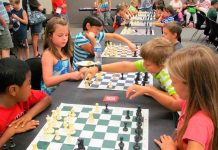| LESSON: 21 | School: RBSFGS |
| Date: 07.10.2013 | Teacher name: Turganbayeva |
| CLASS: 7В | Number present: 9 | absent: |
| Learning objectives(s) that this lesson is contributing to | 7.R2 understand independently specific information and detail in short, simple texts on a limited range of general and curricular topics 7.S2 ask simple questions to get information about a growing range of general topics 7.UE4 use a variety of determiners including all, other on a growing range of familiar general and curricular topics |
| | All learners will be able to: -
understand with limited support the main points of extended talk on a range of general and curricular topics -
understand most specific information and detail of supported extended talk on a range of general and curricular topics -
give an opinion at sentence level on an increasing range of general and curricular topics |
| Most learners will be able to: -
understand more complex supported questions on a growing range of general and curricular topics -
keep interaction going in longer exchanges on a range of general and curricular topics -
organise and present information clearly to others respect differing points of view |
| Some learners will be able to: communicate meaning clearly at sentence and discourse level during pair, group and whole class exchanges |
| Previous learning | In the previous unit, learners developed listening and speaking skills to solve problems creatively and cooperatively in groups |
| Plan |
| Planned timings | Planned activities | Resources |
| 1-10 minutes Middle 11— 15 minutes 15 – 22 minutes 23-30 minutes 31-34 minutes | -
Warm up. Speaking and writing skills. What do I use the computer for? -
to ask the students what they use the computer for (I) -
to write on the blackboard and make a list of things what they use the computer for -
to stand in a circle and tell in turn what they use it for II. Reading skills Text about radio and TV (communication and technology) -
Pre-reading task: to ask what role radio and TV play in their life -
to read the text “Radio and TV in my life” and say “Agree or Disagree?” -
to read the text again and answer the questions -
to explain that it was a preparation for them to be ready to speak on a topic “The role of communication technologies in my life” giving them some ideas and to give hometask | David Seymour and Maria Popova, 700 classroom activities, Macmillan, 2003, Conversation, Science and Technology, Project p. 33
| LESSON PLAN
Date 07 .10. 201 3 Grade 9 th C, D The teacher’s name Bekeeva Ainur The theme of the lesson People are people. General unit goals: Students will: learn more about the types of personality adjectives read articles or information and understand the main ideas. apply their background knowledge and their readings in speaking and writing. learn vocabulary related to the topic have exposure to authentic reading texts. learn to express their ideas and thoughts in writing. Goals of this lesson: Students will: learn about the types of subordinate clauses learn vocabulary related to the topic gain more information about different people learn to use computer and the Internet as a tool to their information search and their learning. talk about sport they want to go in forvisit and put their ideas in writing. Student learning outcomes for this lesson By the end of this lesson, students will be able to Understand the meaning of the vocabulary in the discussion questions and use the vocabulary in their discussion. Share their experience and knowledge of different types of people they know with their classmates. Learn to use the internet to search for information. Read and find information they want on the internet. Materials: Video explanation of verb +ing form and verb+infinitive , a table of vocabulary list on personality adjectives, audio disk, textbook, distributional materials and workbook exercises Teaching the lesson Activity 1: Opening (10 minutes) Explanation of verb +ing form and verb+infinitive , video explanation, Practical tasks to guess the difference between verb +ing form and Verb+infinitive . Exercises on pp19-20 from Student’s book. Additional tasks from Betty Scrampfer Azar “English grammar in use” pp 221 Activity 2: Vocabulary practice (15 minutes) To get acquainted with the vocabulary on personality adjectives Presentation on personality adjectives to show followed by practical tasks Situations to guess what personality it is.
Activity 3: Reading and writing exercises (13minutes) Text: “People are people” Listen and answer the questions Do you agree with the description of you? To do the colour test. To do some pre-writing tasks to help them to be able to write an informal letter.
Homework assignment Activity 4: To revise the grammar verb +ing form and verb+infinitive To learn by heart the vocabulary To write an informal letter.
LESSON PLAN |
| Date | 07.10.2013 |
| Grade | 11c |
| The teacher’s name | Bekeeva Ainur |
| The theme of the lesson | Snap judgement. |
| General unit goals: | Students will: -
learn more about the meaning of the word snap judgement and try to make snap judgements themselves -
read the article or information and understand the main ideas with the help of the English-English dictionary -
apply their background knowledge and their readings in speaking and writing -
learn vocabulary related to the topic -
learn how to work individually and in a team -
have exposure to authentic reading texts -
learn to express their ideas and thoughts in speaking and writing |
| Goals of this lesson: | Students will: -
learn vocabulary related to the topic -
gain more information and apply the background knowledge about snap judgement and thin slicing -
learn to use computer and the Internet as a tool to their information search and their learning -
talk about the situations when they have to make snap judgements and put their ideas in writing. |
| Student learning outcomes for this lesson | By the end of this lesson, students will be able to -
Understand the meaning of the vocabulary in the discussion questions and use the vocabulary in their discussion. -
Share their experience and knowledge with their classmates. -
Learn to use the internet to search for information. -
Read and find information they want on the internet. |
| Materials: | -
Video explanation of “Future in the past”, a list of first impressions for learners to agree or not, a text about thin slicing, an audio disk, pictures, some exercises from student’s book and workbook |
| Contents of the lesson |
| Activity 1: Opening (5 -10 minutes) | -
Warm up. -
Game “Sheep’s head”. Learners revise the new words of the text “Listening with your eyes” -
To give definitions of the words and let the learners guess what word it is. -
Discussion box. A list of first impressions is given and they talk about the importance of first impressions and give situations when they have to make snap judgements. |
| Activity 2: Writing and reading activities (15-20 minutes) | -
-
II. The main part. Malcolm Gladwell “Blink” -
a) to listen to the talk about thin slicing and write the -
definition of the term -
b) the learners are given the background information about -
thin-slicing and with the help of the text the learners will -
try to gain more information about it -
c) to listen to the text again and tell what positive and -
negative examples are given |
| Activity 3: Reading and listening activities -
minutes) | III. Revision of grammar “Future in the past”. Developing speaking. -
video explanation of the tense followed by practical tasks -
Pair work. Talk about things you were going to do in the past but didn’t do. Ex:3c, p19 Student’s book -
Working with pictures. Listen and match. -
Listen again and guess who… -
Vocabulary. . Match the two parts of the sentences. -
Read and speak. Read the three scenarios and decide what you would do in each situation. -
Group work.(G) Discuss the consequences of each decision. |
| Homework assignment | -
To do speak and listen tasks on page 22 from Student’s book. -
To get prepared to do the interview in the classroom. Role playing. |





